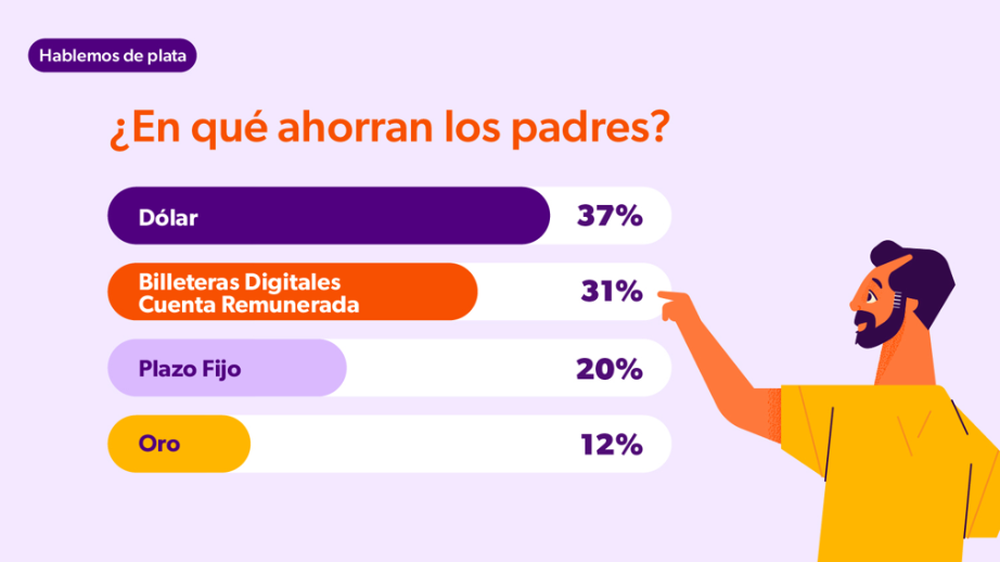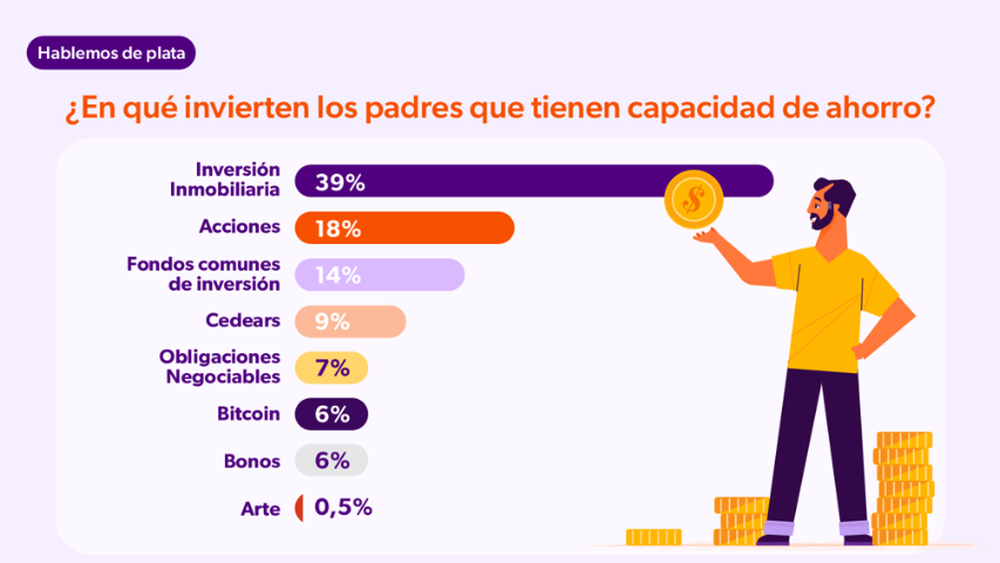Dollars, funds, and bricks and mortar: How Argentine parents save and invest

A report reveals the most common financial strategies: from a preference for the dollar to new forms of digital investment focused on liquidity.
We Mendoza residents are proud of the exceptional affection San Martín felt for Mendoza, but we forgot about that pride and got carried away by the commercial wave and celebrated Father's Day on the third Sunday in June.
For Father's Day , the consulting firm Focus Market prepared a special report for the financial education blog Hablemos de plata, published by Naranja X, analyzing the savings and investment habits of Argentine fathers . The results show a combination of traditional practices with new trends driven by technology and generational change.
According to the survey, 37% of parents surveyed choose to save in dollars , while 31% use digital wallets with interest-bearing accounts . Twenty percent opt for fixed-term deposits and 12% for gold as a way to preserve the value of their income.
For Focus Market director Damián Di Pace, despite a macroeconomic context with a relatively stable exchange rate, declining inflation, and a strengthening peso, the dollar remains the predominant option. He explained that this preference is not so much due to current market conditions, but rather to a deep-rooted behavior shaped by the country's history of inflation, which generates distrust in situations of apparent stability.
Investments of Argentine parents 2.png

In addition to savings, the report examined the instruments in which Argentine parents currently invest . The results indicate that 40% invest in mutual funds, 31% in Cedears (foreign shares traded on the local market), 14% in stocks, 9% in negotiable bonds, and 6% in real estate .
On this last point, Di Pace emphasized that many parents who have the savings capacity continue to invest in property. He emphasized that, in the face of volatile financial markets, real estate offers a sense of security that, in some cases, outweighs profitability. He indicated that it is a tangible and stable investment that transcends economic circumstances and is often considered a family legacy.
However, he also pointed out generational differences in investment approaches. He stated that younger parents tend to value liquidity, diversification, and digital access to financial products more . Unlike previous generations, who associated stability with the purchase of a house or apartment, many of today's parents prefer mobile platforms that allow them to invest with a low entry cost, retire easily, and adapt their strategy according to the evolution of their personal or family finances.
Investments of Argentine parents 1.png

Finally, the report highlights how financial decisions change throughout the family life cycle . Di Pace explained that, when children are young , conservative and liquid options predominate, designed to cover immediate needs such as education or healthcare. However, as children grow older and certain expenses stabilize, parents tend to adopt longer-term wealth strategies, such as purchasing a property or launching a family business.
He also noted that household composition plays a role : families with only one child tend to concentrate their savings on a single project, while those with more children tend to distribute their capital based on multiple needs.
In this way, the report offers an updated snapshot of how parents in Argentina think, plan, and project financially, in an environment that combines signs of economic recovery with habits inherited from decades of uncertainty .
losandes





